
Radar | Jan 16,2021
Feb 29 , 2020
By SEBLE WONDEMAGEGN ( FORTUNE STAFF WRITER )
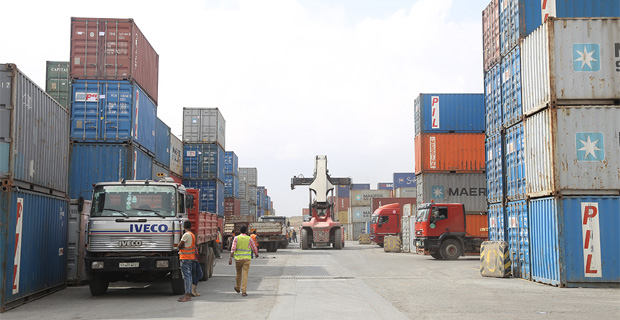 The company will conduct research on the Port’s operating system and its information communication technology (ICT) infrastructure in order to design a system that integrates the Port with importers, exporters, gates and banks, explained Mengist Hailemariam (PhD), a project manager of the Port, which was established in 2009 and is situated 76Km southeast of the capital.
The company will conduct research on the Port’s operating system and its information communication technology (ICT) infrastructure in order to design a system that integrates the Port with importers, exporters, gates and banks, explained Mengist Hailemariam (PhD), a project manager of the Port, which was established in 2009 and is situated 76Km southeast of the capital. A Switzerland-based consulting firm won a bid to deploy a record keeping, planning, control and monitoring system for Modjo Dry Port.
The Ethiopian Maritime Affairs Authority hired Data & System Planning (DSP) to develop a Terminal Operating System (TOS) for the Port for 11.8 million Br. The cost of the project will be covered with funds from a 150-million-dollar loan secured from the World Bank to expand the Port that was approved on March 31, 2017.
To hire a company for the project, the Authority floated a tender in May of last year. The bid attracted five expressions of interest from Ethiopian and European companies. Three of the companies reached the technical and financial evaluation stage, which began on October 10, 2019, and resulted in the selection of the Swiss firm.
The company will conduct research on the Port’s operating system and its information communication technology (ICT) infrastructure in order to design a system that integrates the Port with importers, exporters, gates and banks, explained Mengist Hailemariam (PhD), a project manager of the Port, which was established in 2009 and is situated 76Km southeast of the capital.
"The initiative is expected to strengthen the relationship between banks, importers and exporters,” said Mengist.
DSP, which was established in 1986 to provide worldwide IT solutions and business operations consulting and has completed over 40 terminal operating system projects, including in South Africa, Namibia and Nigeria, is expected to finalise the consulting work within four and a half months.
After it delivers the project, the Authority will hire a contractor for the construction of a logistics hub through a bid document that will be prepared by the consultant. The consultant has delivered a drafted inception report, which is currently under review by the Authority.
Upon completion, the expansion will enable the Port to include new services such as import de-consolidation, export consolidation, cold storage, a container terminal, and dry bulk storage for products such as fertiliser and grain. The hub will be constructed on 173ha of land, an increase from the current 62ha. The expansion will help cut the average waiting time of a container from two months to three weeks.
The project, which is expected to be operational in July 2022, will upgrade the Dry Port to what will be called the Modjo Green Logistics Hub, which will integrate its operations with Ethiopian Shipping & Logistics Service Enterprise (ESLSE).
The process has been delayed due to its complicated design, said Mengist.
Roba Megersa, CEO of ESLSE, said that the delay in the project kept the Enterprise from investing in other projects that are planned at the Port, which ships 80pc of the country's multi-modal containers and has the capacity to handle 17,500 containers at a time and 170,000 standard containers annually.
“Even though it’s delayed," said Roba, "it's now progressing well."
The company will also establish requirements for the construction of the ICT infrastructure. It will prepare a bid document after finishing the research by identifying the important systems that should be installed at the Hub to facilitate the exchange of data, according to Mengist.
The Port will be transformed into a fully operational logistics hub by 2023 that will be able to handle import and export activities.
The project will make the Port efficient in its operational capacity and ICT infrastructure, according to Elizabeth Getahun, president of the Ethiopian Freight Forwarders & Shipping Agents Association.
Currently, the country has seven operational dry ports: Modjo, Qality, Gelan, Semera, Meqelle, Dire Dawa and Kombolcha. The ports have an aggregate capacity of hosting 24,000 containers at a time and handle over 90pc of the country’s physical exports, which currently stand at around three billion dollars, and imports that are valued almost five times more.
Gizeshwork Tessema, CEO of Gize Plc, a logistics and shipping company, said that the government has to prioritise solving the problems at the Djibouti Port.
Gizeshwork also says that there are a lot of things that the government can do to make the logistics sector more efficient.
"The government should form a private-public partnership (PPP) in the logistics sector," she said, "and closely work with the private sector to solve the issues."
The current Modjo Dry Port will be fully transformed into the Modjo Green Logistics Hub.
PUBLISHED ON
Feb 29,2020 [ VOL
20 , NO
1035]

Radar | Jan 16,2021

Fortune News | May 02,2020
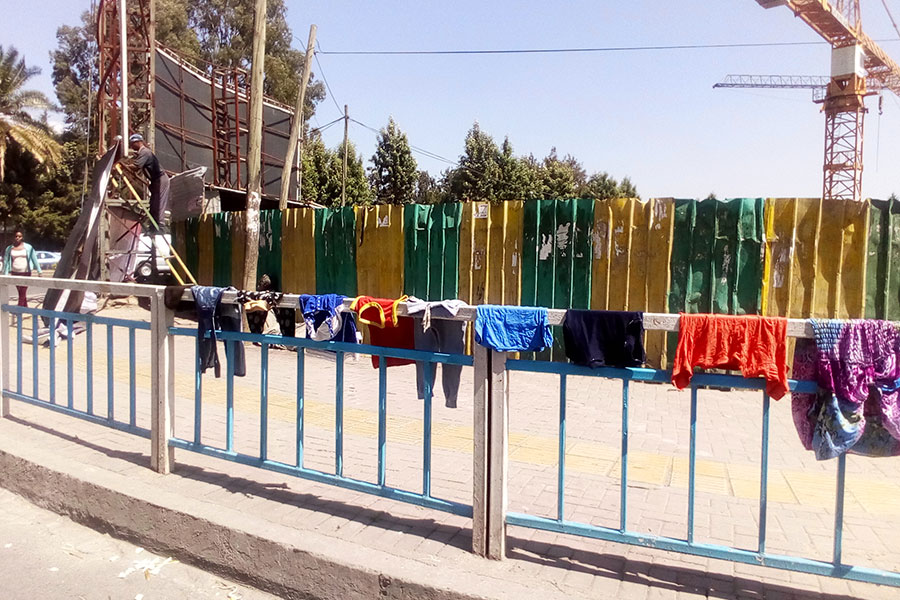
Radar | Mar 23,2019

Radar | May 23,2020
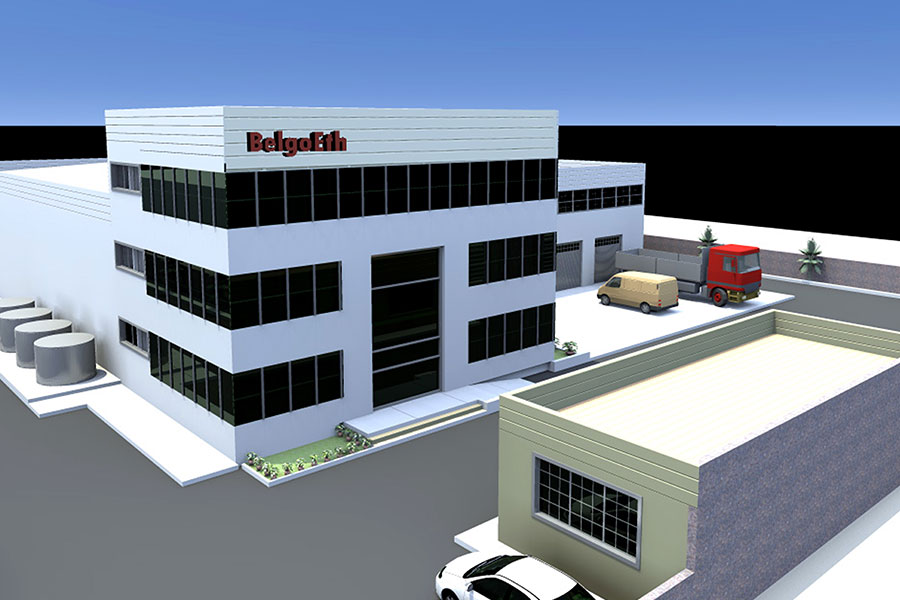
Fortune News | Jan 26,2019

Fortune News | Oct 26,2019
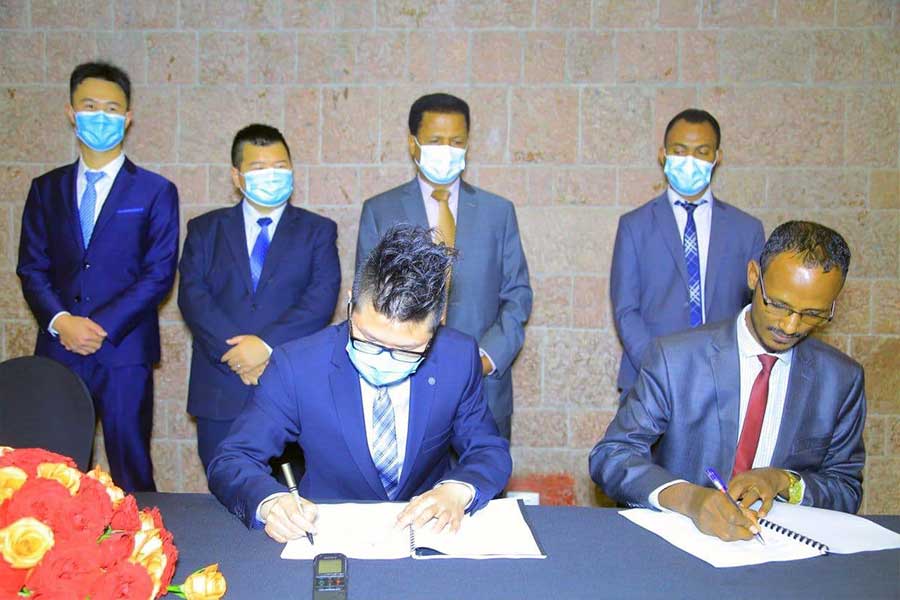
Fortune News | Nov 21,2020
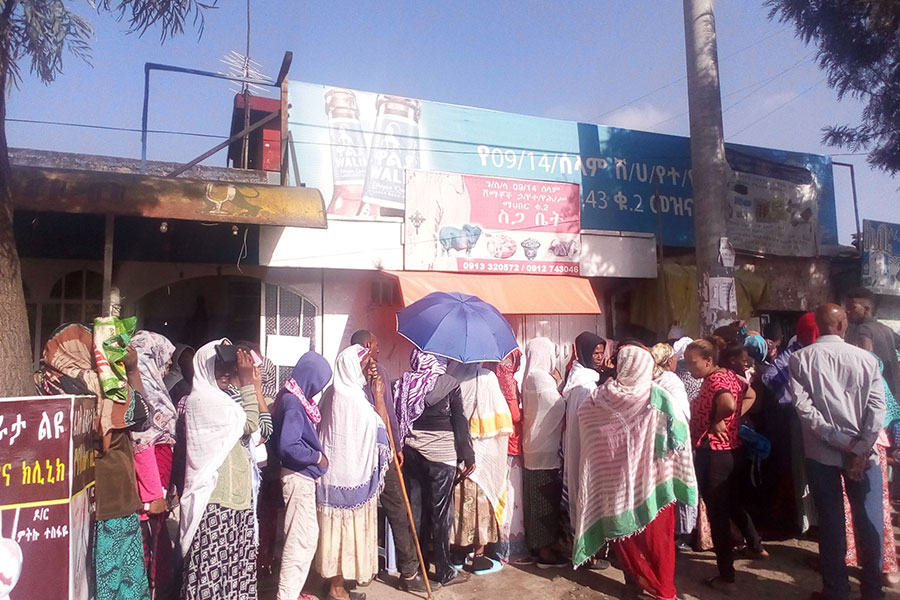
Featured | Apr 26,2019

Fortune News | Dec 05,2018

Radar | Apr 22,2022

Dec 22 , 2024 . By TIZITA SHEWAFERAW
Charged with transforming colossal state-owned enterprises into modern and competitiv...

Aug 18 , 2024 . By AKSAH ITALO
Although predictable Yonas Zerihun's job in the ride-hailing service is not immune to...

Jul 28 , 2024 . By TIZITA SHEWAFERAW
Unhabitual, perhaps too many, Samuel Gebreyohannes, 38, used to occasionally enjoy a couple of beers at breakfast. However, he recently swit...

Jul 13 , 2024 . By AKSAH ITALO
Investors who rely on tractors, trucks, and field vehicles for commuting, transporting commodities, and f...

Oct 25 , 2025
The regulatory machinery is on overdrive. In only two years, no fewer than 35 new pro...

Oct 18 , 2025
The political establishment, notably the ruling party and its top brass, has become p...

Oct 11 , 2025
Ladislas Farago, a roving Associated Press (AP) correspondent, arrived in Ethiopia in...

Oct 4 , 2025
Eyob Tekalegn (PhD) had been in the Governor's chair for only weeks when, on Septembe...